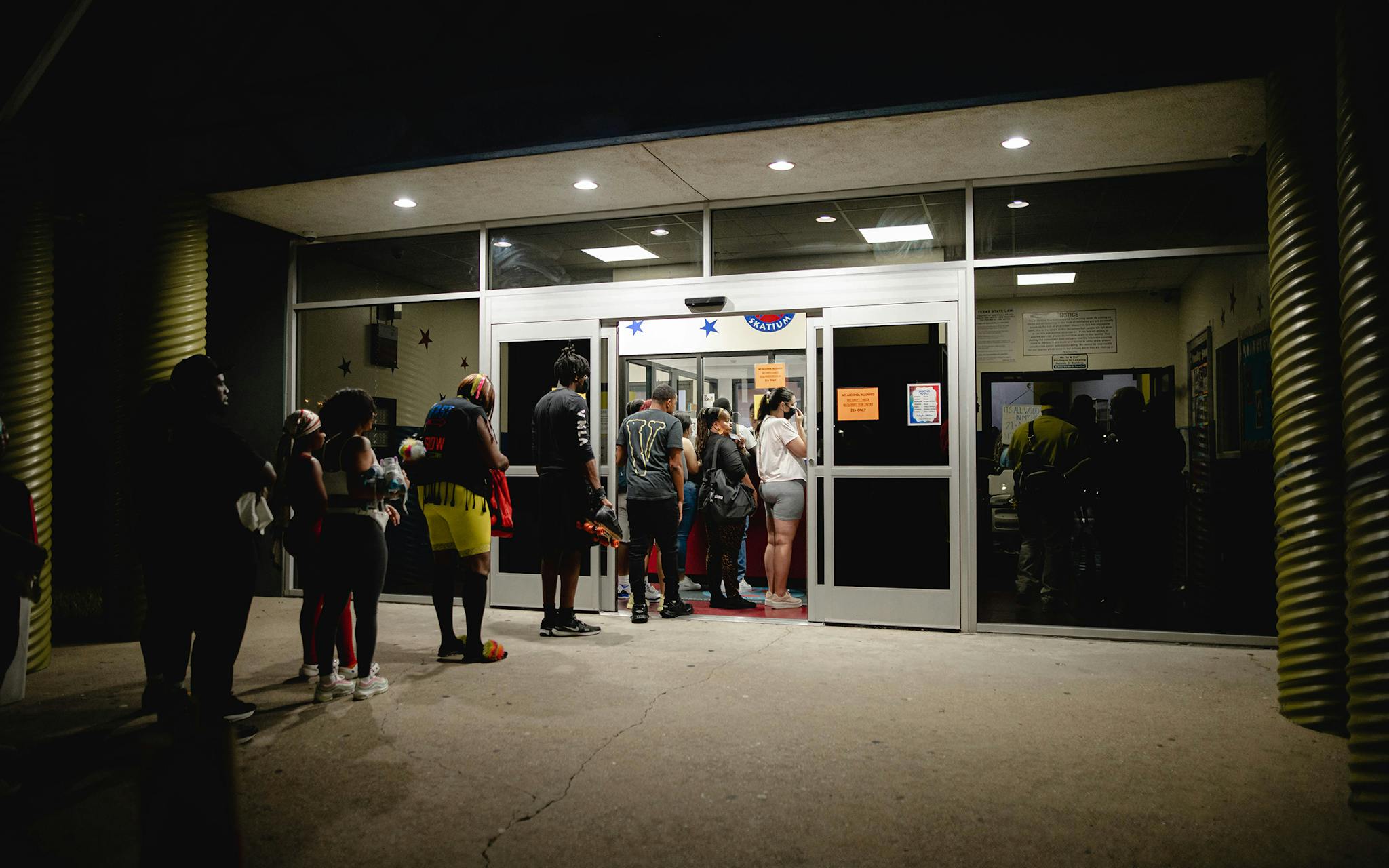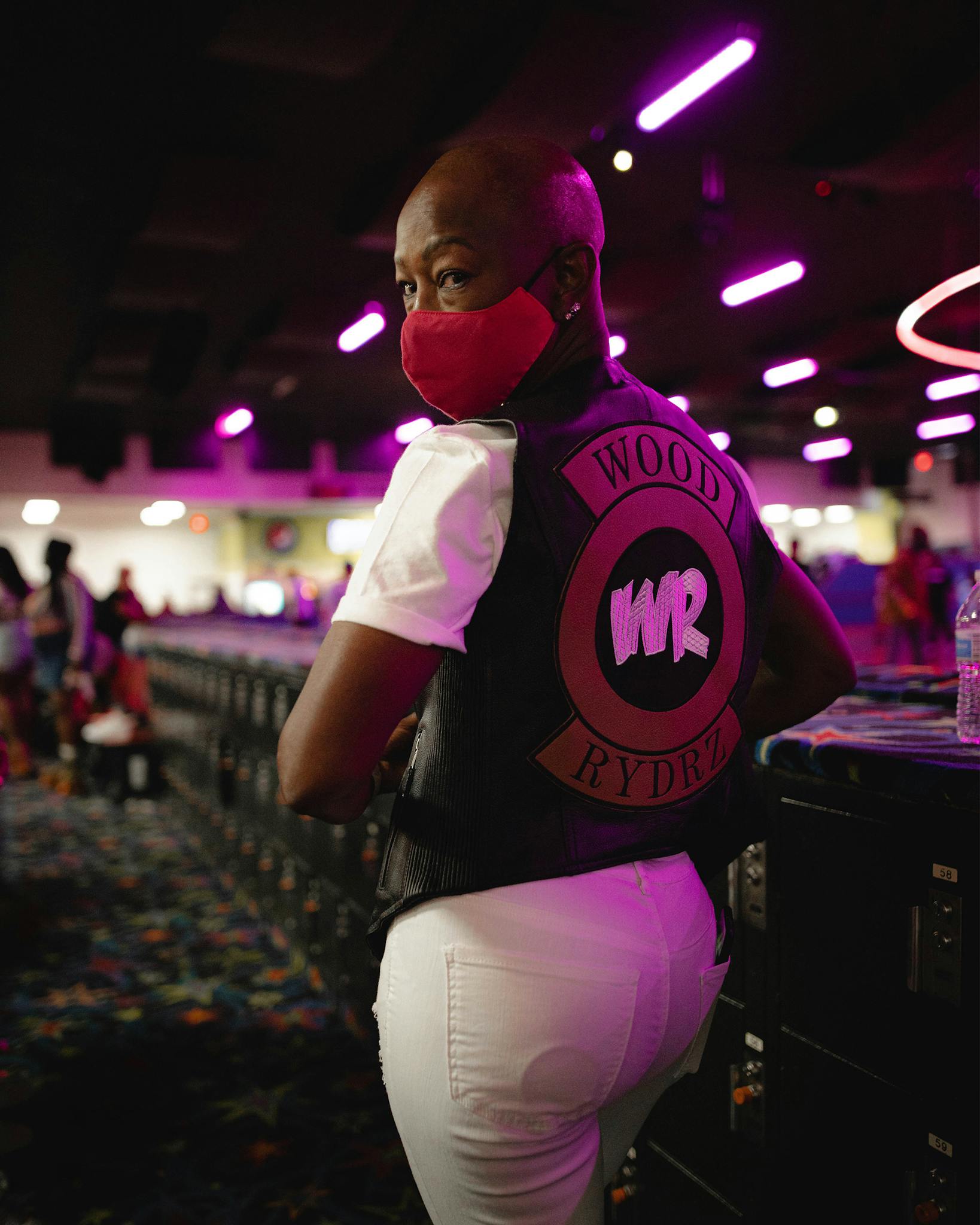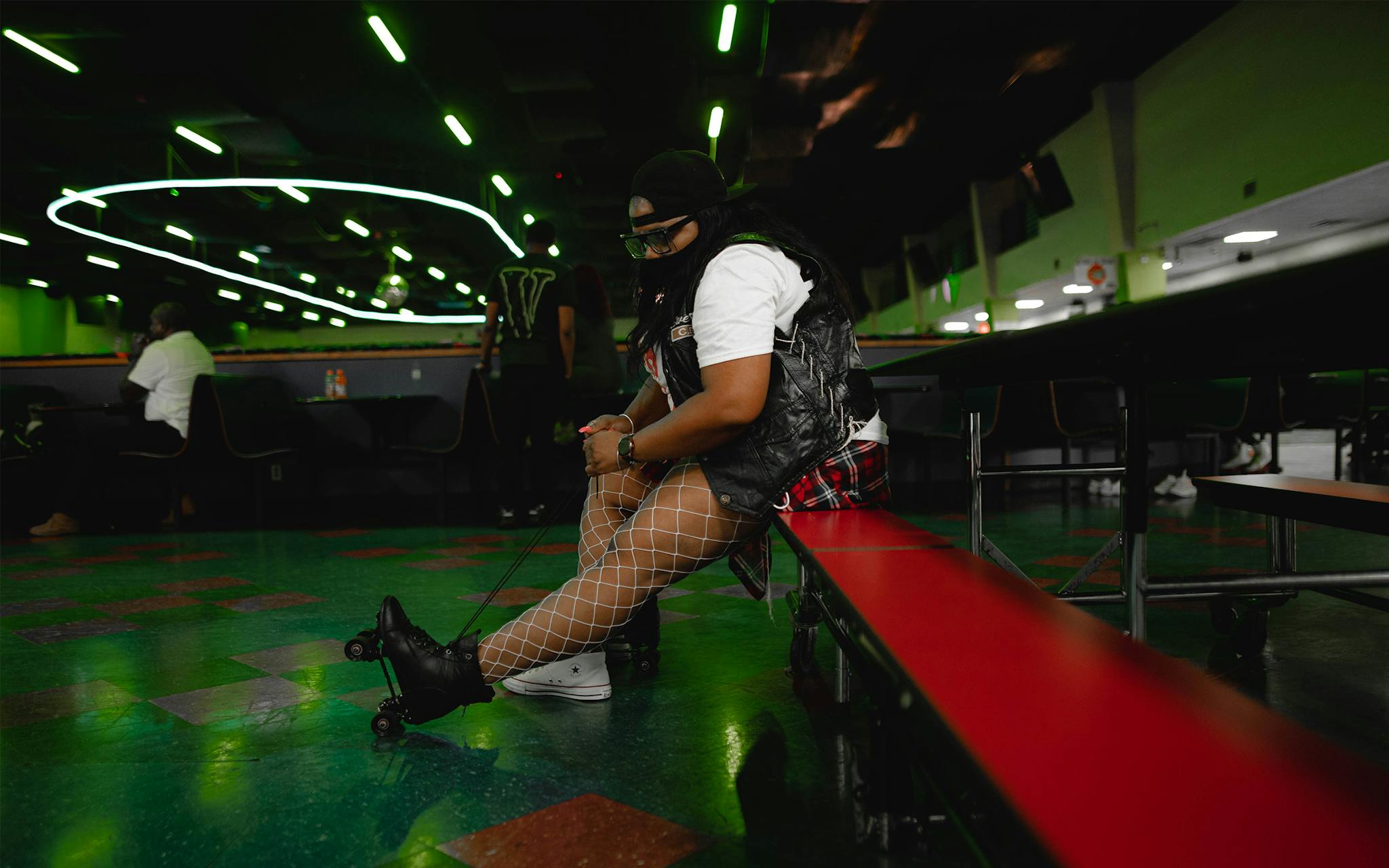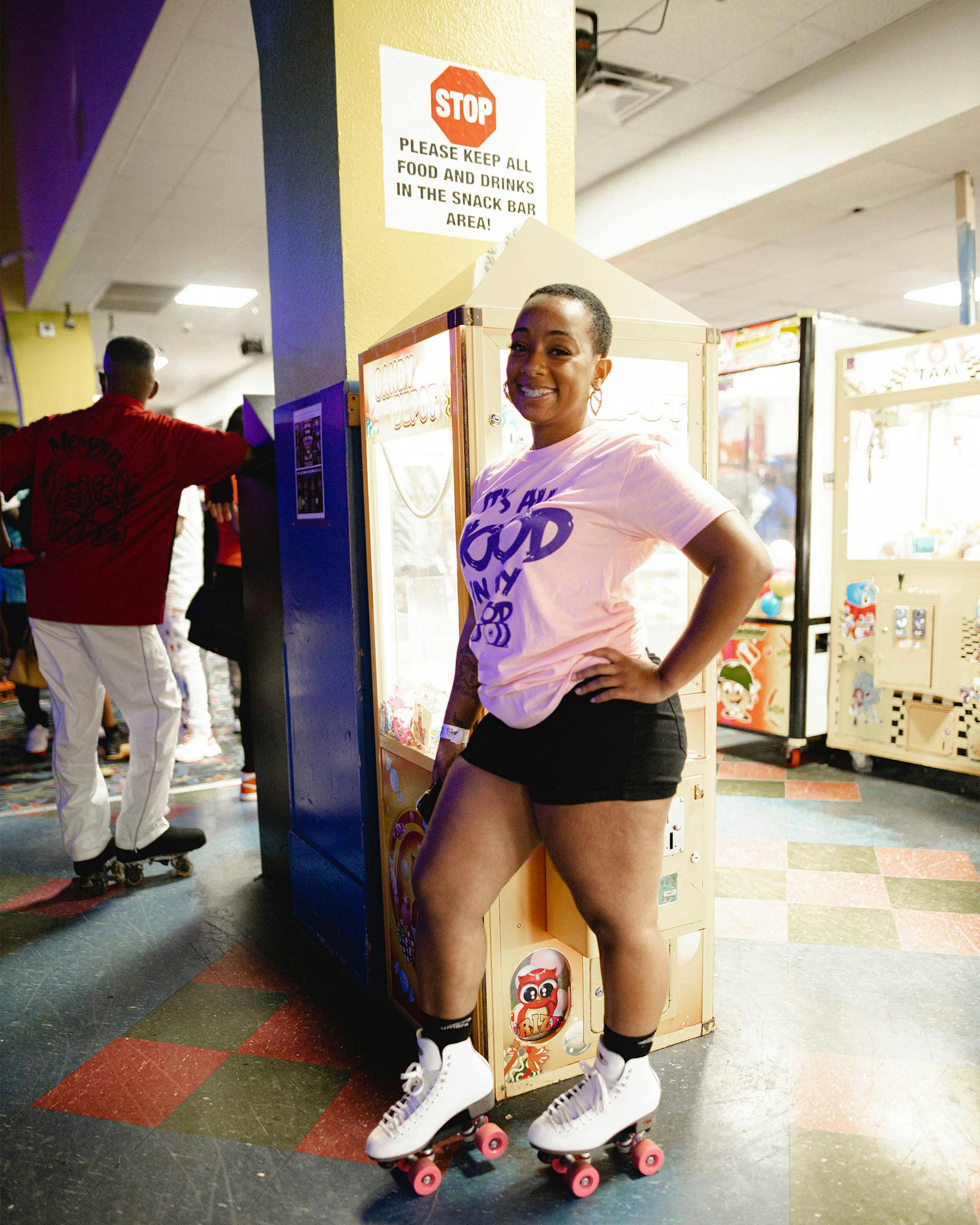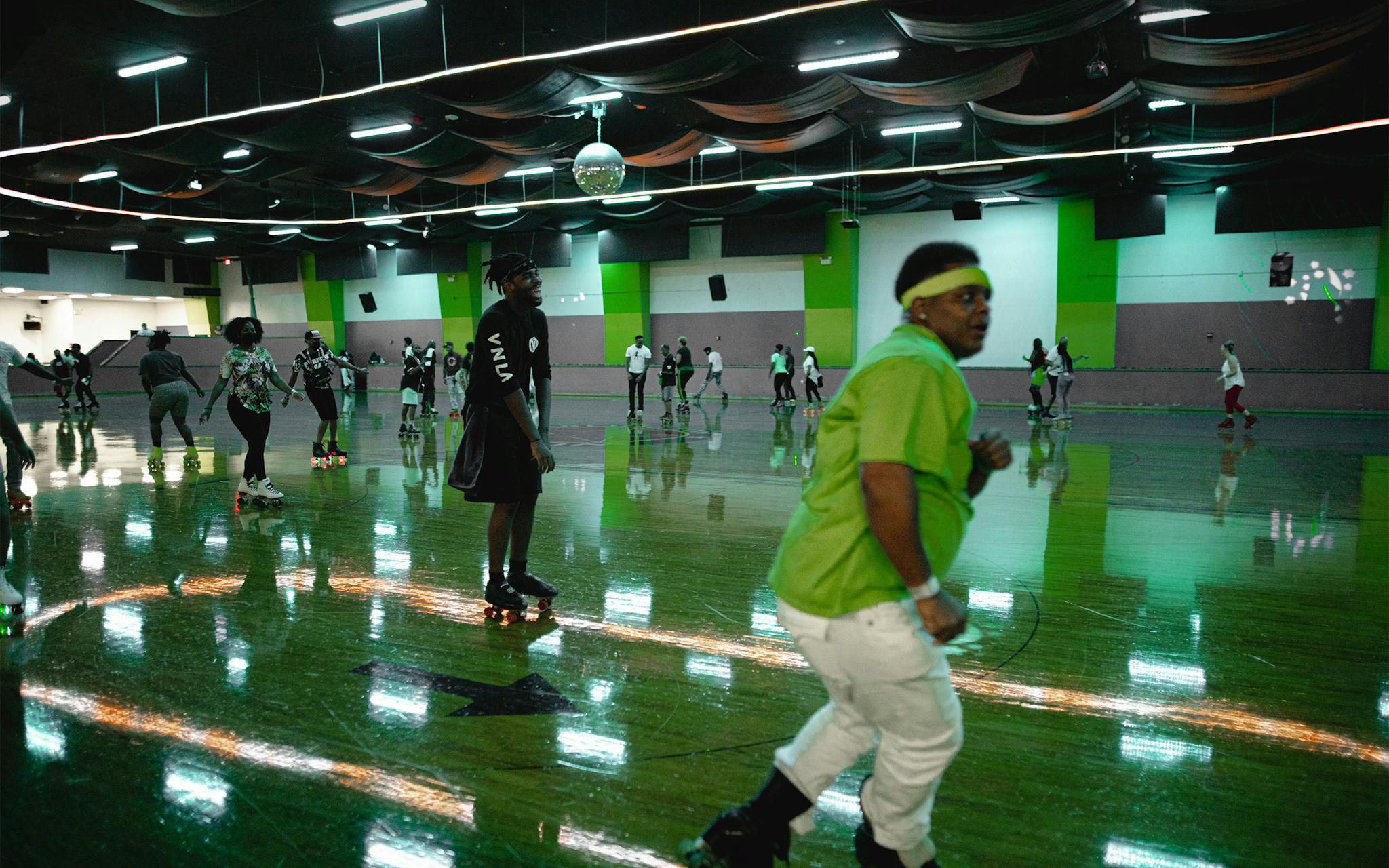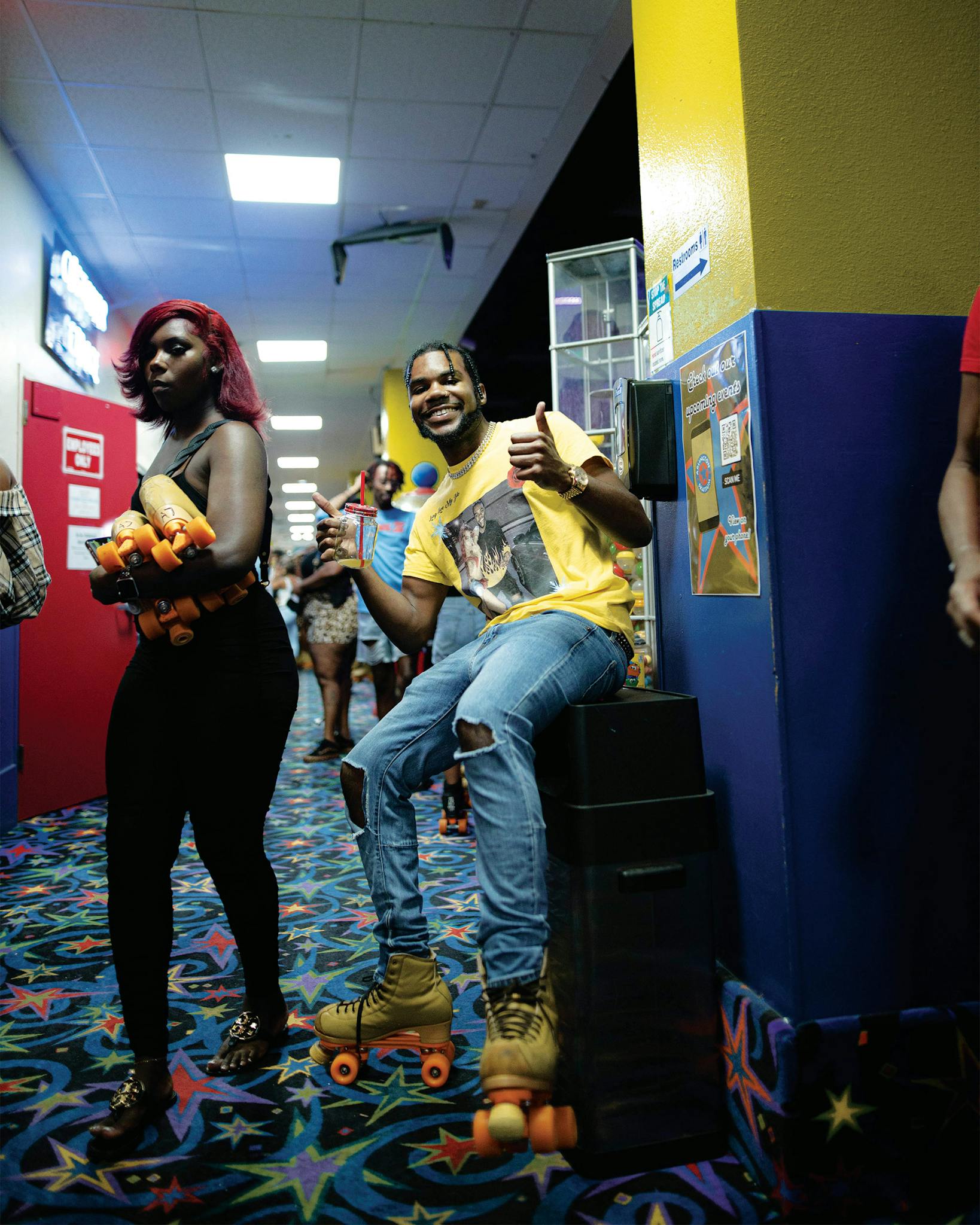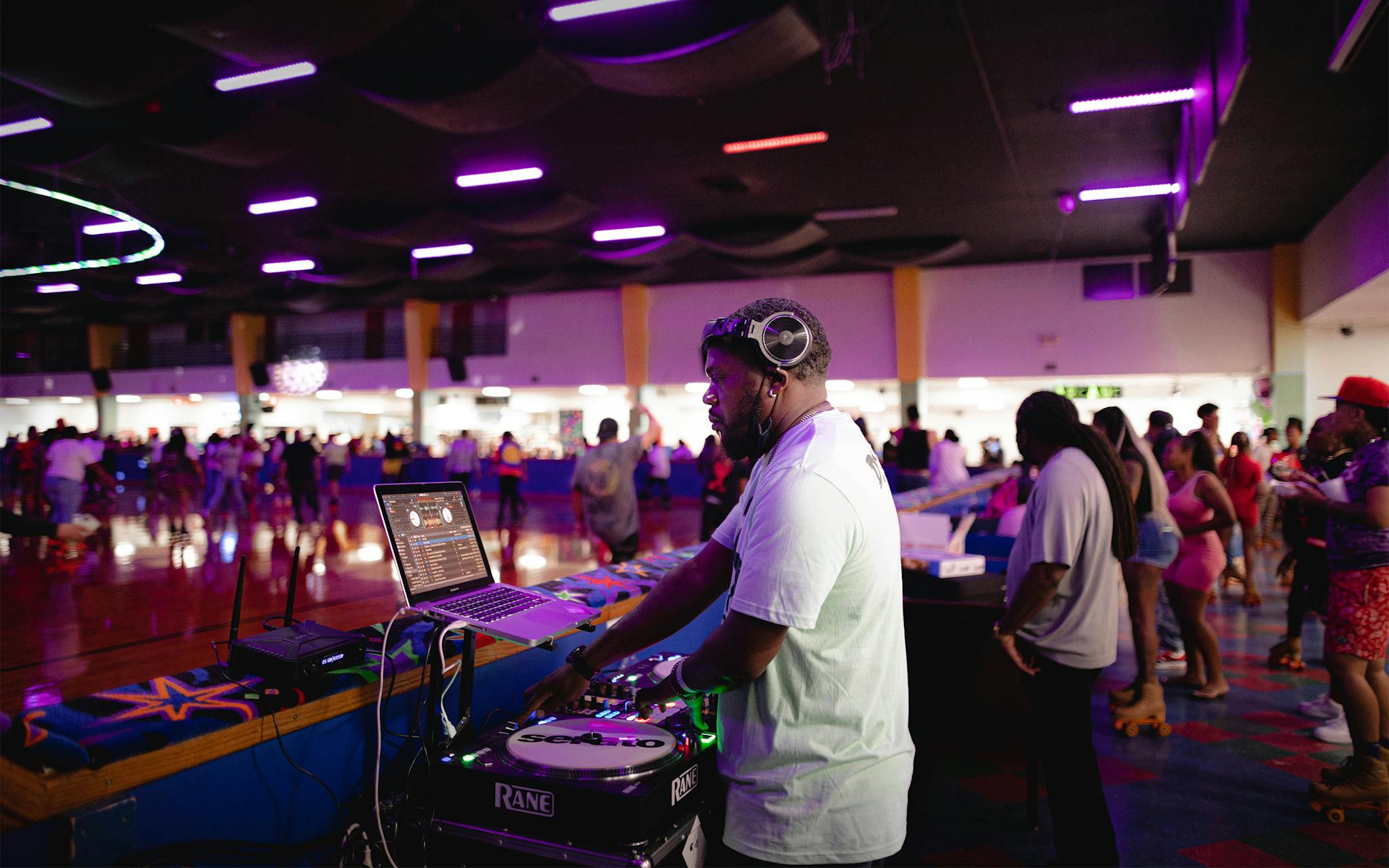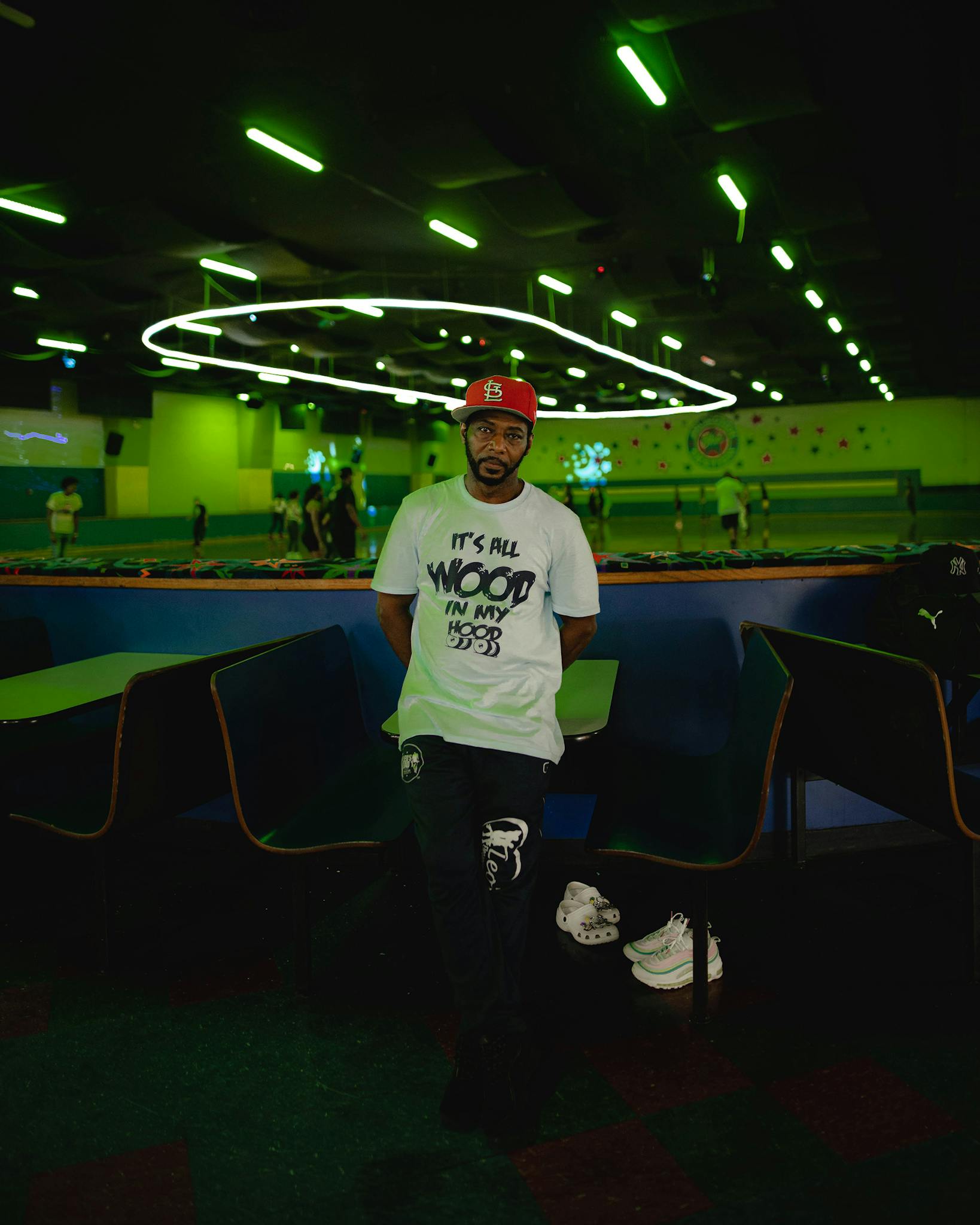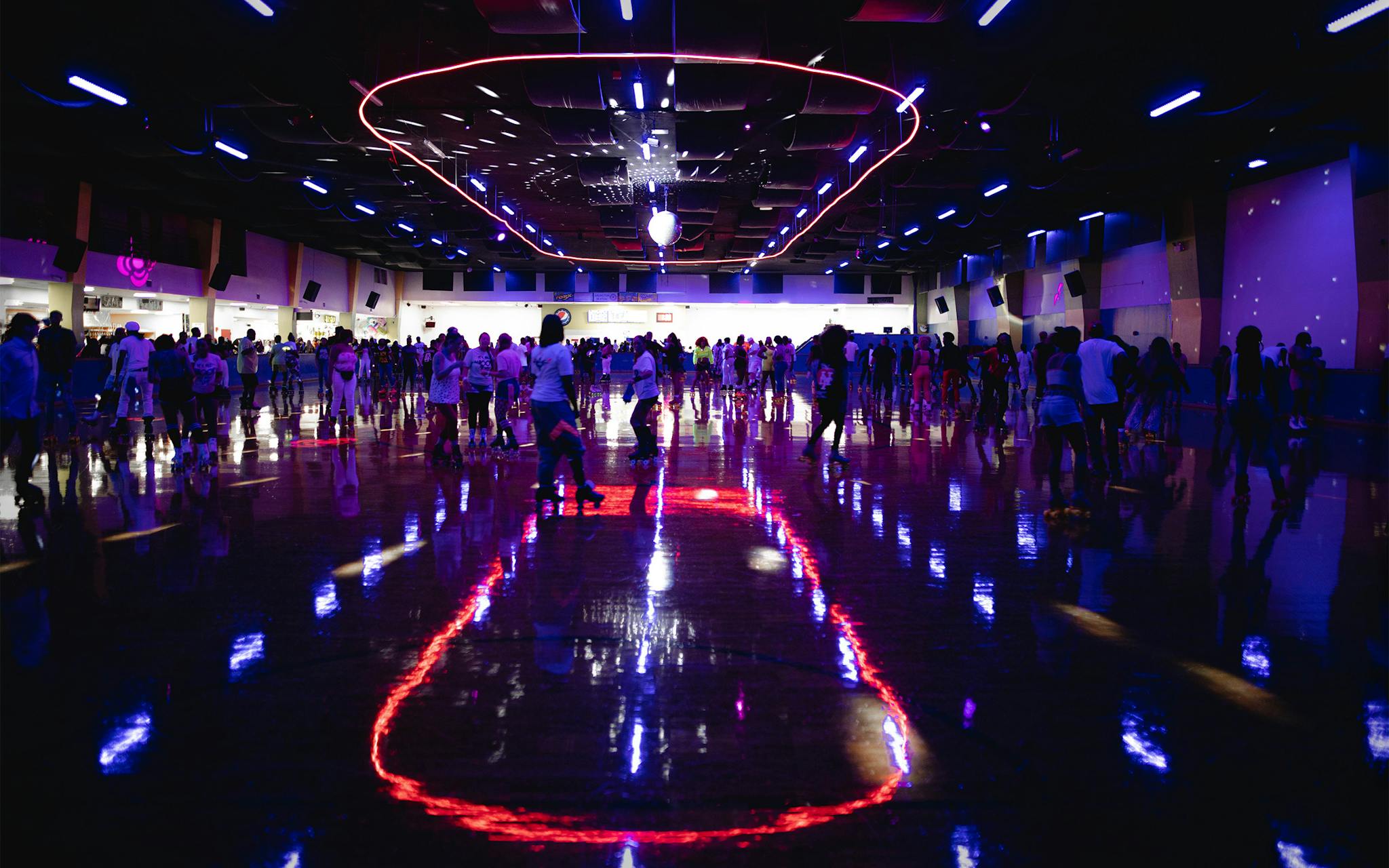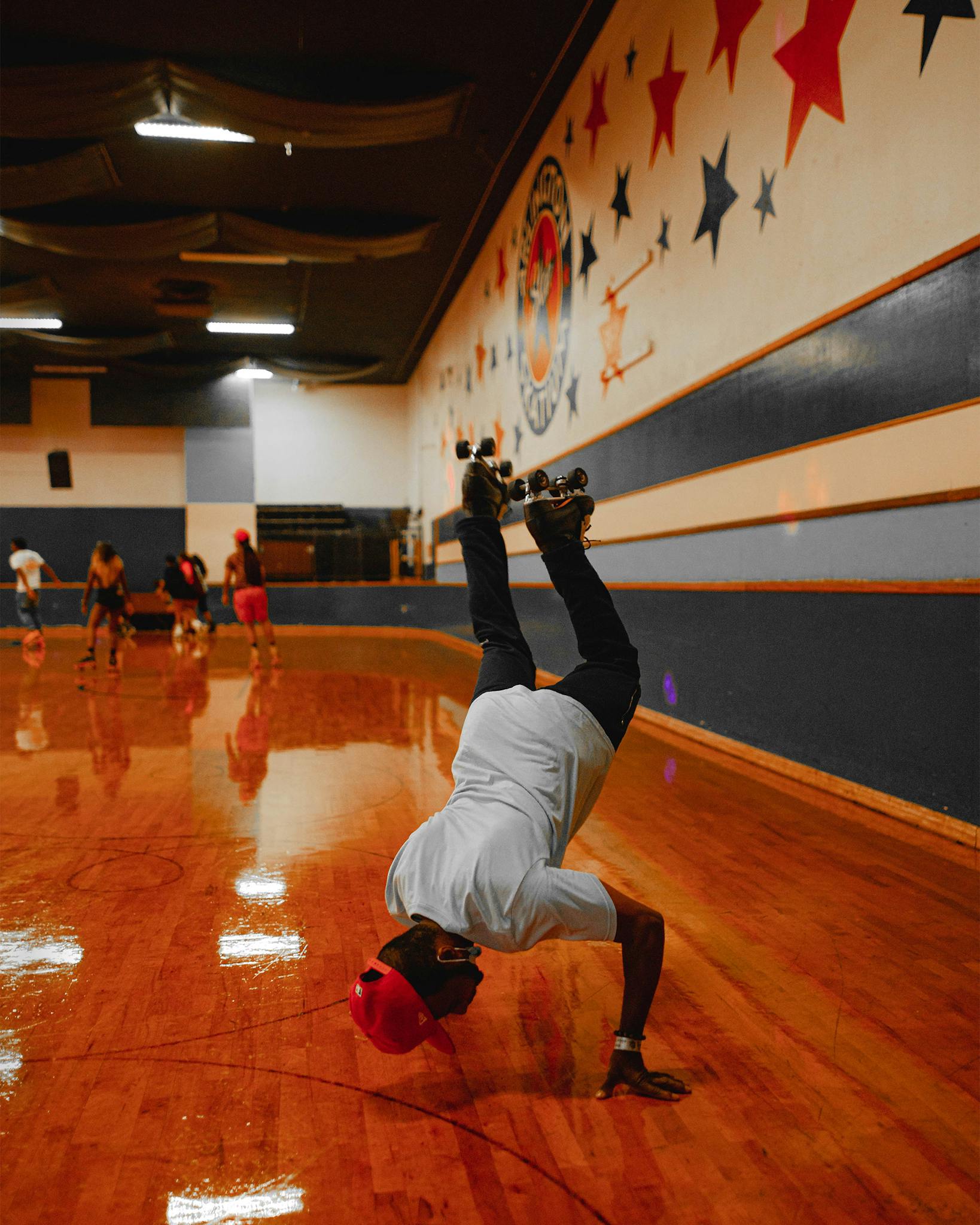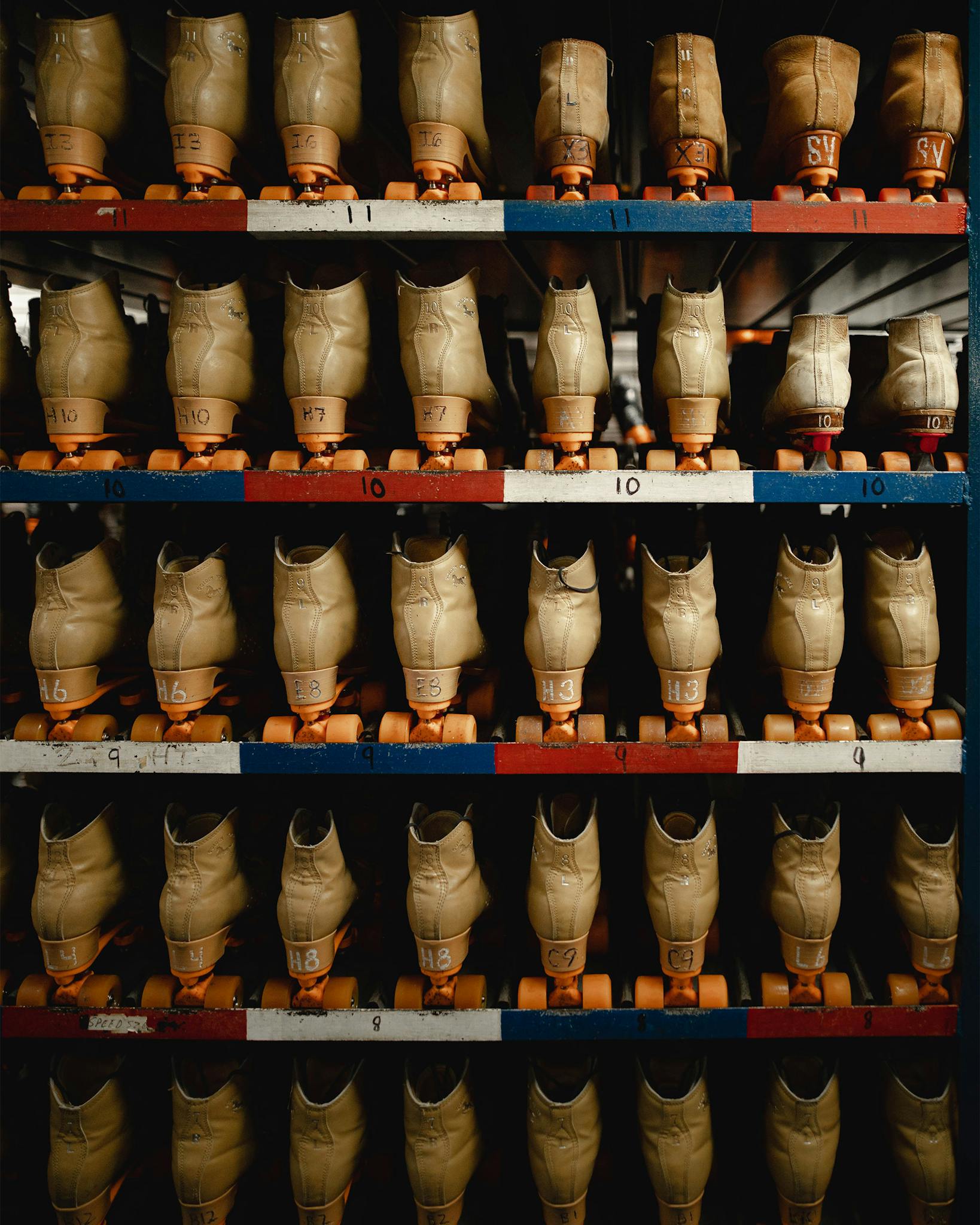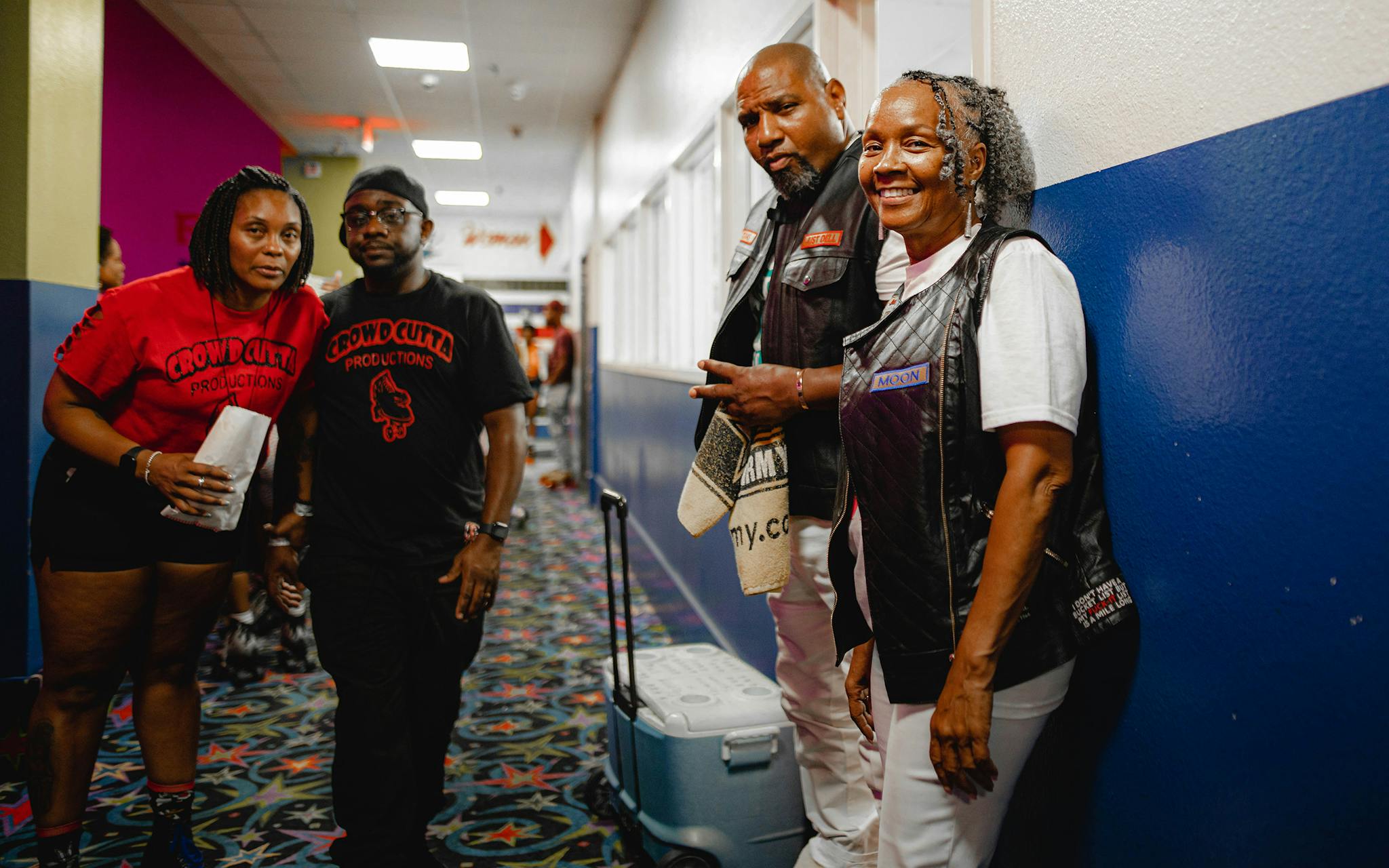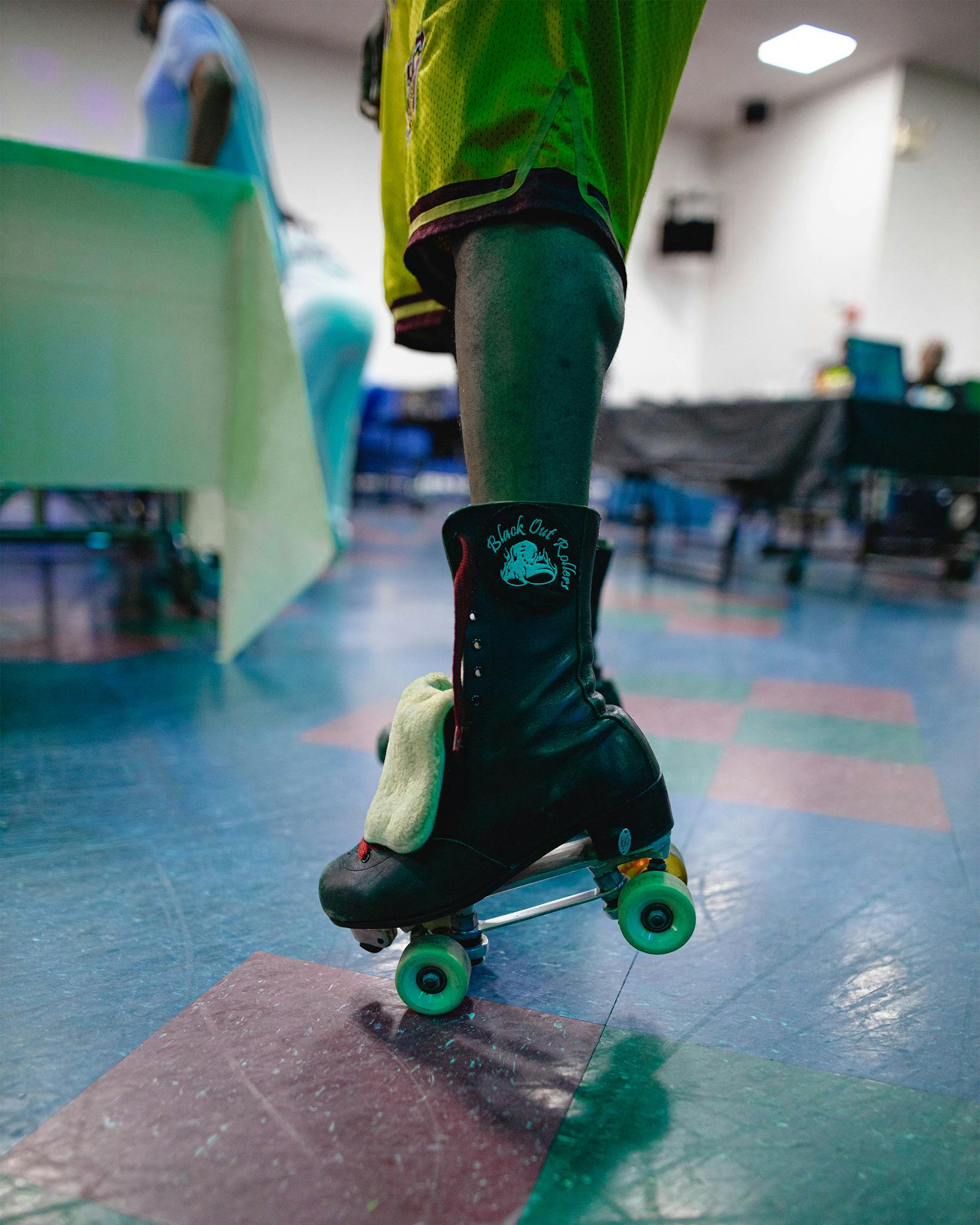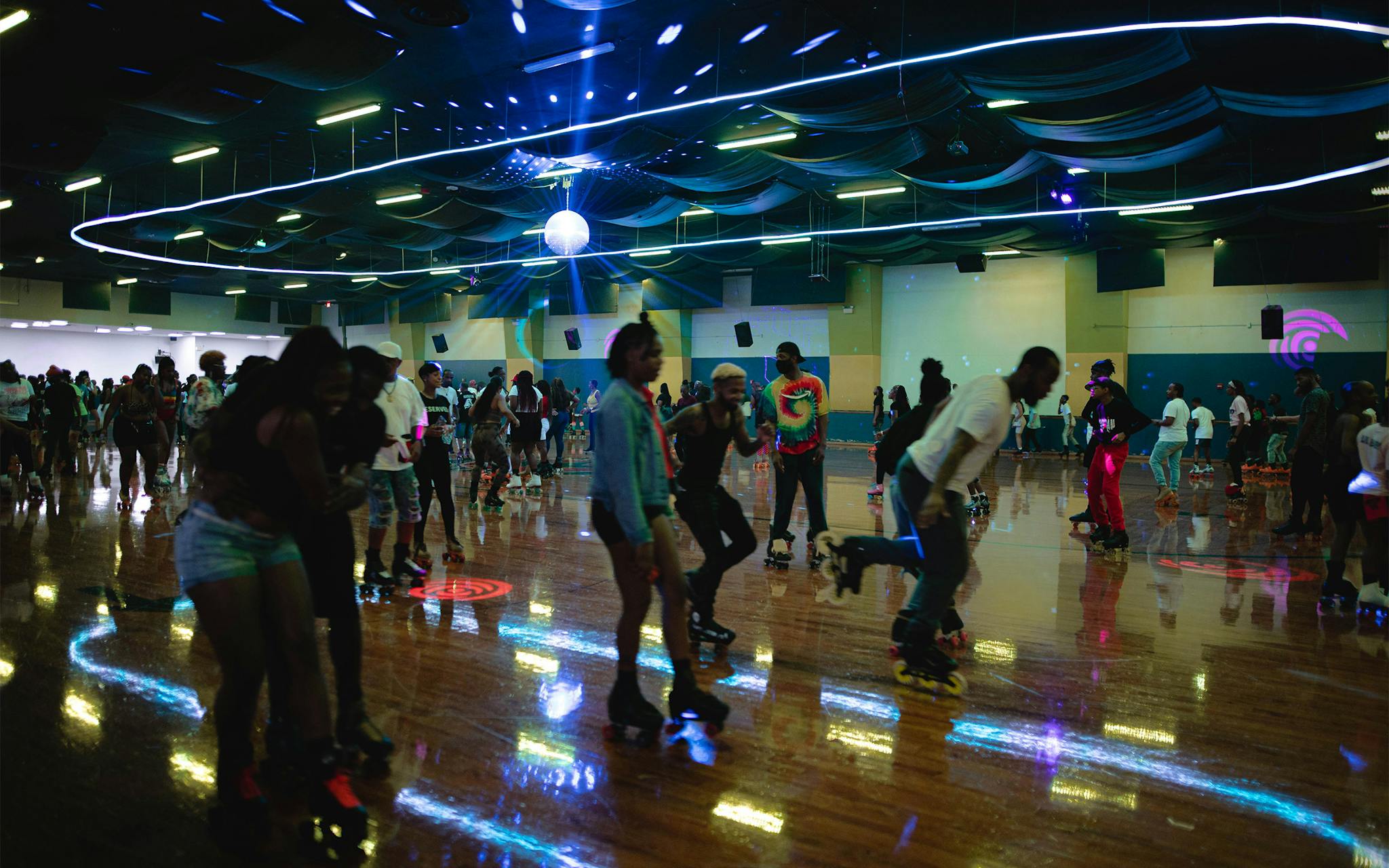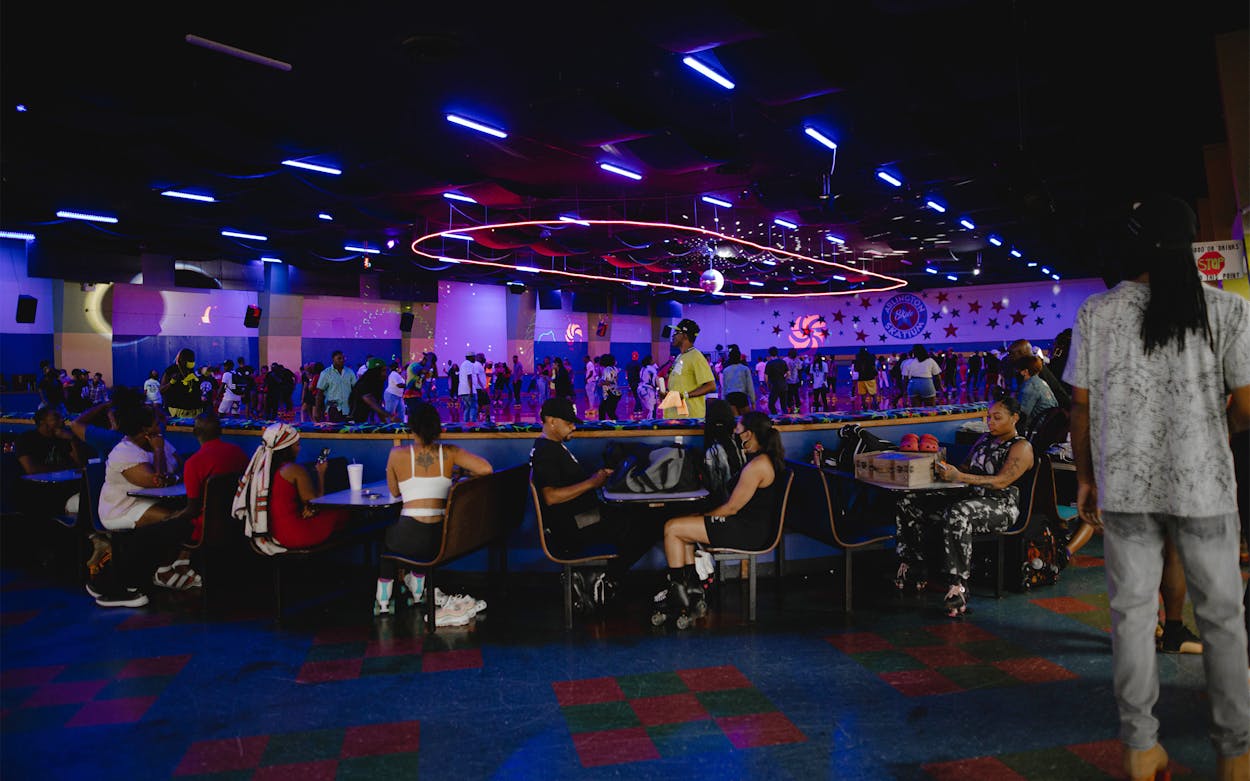The last day of June 2013 began the hardest period of Wanda “Gigi” Brown’s life. On that day, a blood clot killed her youngest daughter, Marcia, at age 34. Brown, then 54, stopped eating and lost seventeen pounds in a week. She felt her will to live slip away. Brown’s doctor warned her family that she could die if she didn’t get help for her depression.
About a month after her daughter’s death, a distraught Brown drove aimlessly in the Dallas suburb of Grand Prairie, twenty minutes from her home in Bedford. She pulled into a parking lot to pray for help. When she looked up, she saw a red-roofed building and a white sign with black letters: “FORUM ROLLER WORLD.” “I went inside like I was on automatic pilot. The owner said adult skate night is on Sundays,” Brown says. “I hadn’t skated in thirty-eight years, but God has a sense of humor.” When she returned home, Brown ordered a pair of white, Chicago-brand skate boots, with a raised heel and toe stop.
Though she was a few decades out of practice, Brown had fond memories of skating. She was nine years old the first time she visited a rink in Hollywood, seven miles from her childhood home in Culver City, California. She recalls the strobe lights and the girls with colorful pom-poms on their skates; it all had a certain glamour that she found alluring. Later, rink time meant time with friends. But she quit at seventeen when she became pregnant with Rhonda, the first of her two daughters. School, work, and Marcia’s birth three years later kept Brown busy away from the rink. So did drugs.
In 1986, Brown’s mother died, and she began smoking cocaine to cope with her grief. Then her life fell apart. When she could no longer care for Rhonda and Marcia, she gave the girls to her father. She lived on the streets for five years, selling dope and stealing to sustain her drug use. “It got really rough. Every time I thought of my mother, I got high,” says Brown. She went to rehab in 1995 and finally conquered her addiction; she’s been sober for 26 years. Brown moved from Los Angeles to Dallas in 2007, to be closer to her grandchildren and great-grandchildren.
During her first skate session as an adult, Brown fell repeatedly on the rink’s wood floor, and discouragement quickly set in. Maybe her time had passed, she thought. Two young women urged her not to give up so easily. “They grabbed me by my hand and stayed with me until I could skate again,” she remembers. “Little by little, I felt better.” She began visiting Forum Roller World twice a week, befriending other skaters and encouraging other lapsed skaters to join her. Over time, her sorrow felt more bearable. “Skating saved my life.”
That’s a not uncommon refrain among skaters, says Houston-based author Amirah “ThaQueen” Palmer. She’s documenting Black skate culture in her book series, “The Evolution of Skating.” Palmer, who has interviewed more than a hundred skaters, says the activity can be a healthy way to process trauma. “Have you ever seen a roller skater sad? No,” she says. “Skating brings joy and release. You focus on the skating, the music. You’re in the zone and forget about everything.”
The pandemic brought increased attention to roller skating, as people who were stuck at home sought new ways to stay active and entertained. With rinks closed for much of 2020 and early 2021, novice skaters did laps in parking lots and on neighborhood streets. The TikTok page for #rollerskating racked up more than 5 billion views, and skate manufacturers couldn’t keep up with demand, leading to widespread shortages. “Business caught fire. I haven’t seen sales like this in twenty-five years,” says Mo Sanders, owner of Good Foot Skates in Dallas. But African American skate culture has been an underground phenomenon for much longer.
Modern Black skate culture has its roots in the 1960s, when civil rights activists fought against formal segregation. Since Sunday evenings had the lowest attendance, many rink owners reserved that night for Black skaters, Palmer says. After desegregation, “Sunday stuck as adult day. The soul people came out,” she says. “Now it’s so diverse. Texas skaters are a melting pot of styles.” Skaters in Texas hail from all over the U.S. and bring their local skate styles with them. There’s Chicago’s J. B. style, which mimics singer James Brown’s stage moves; the Ohio stride, notable for its smooth, wide-legged crossovers; and trains, groups of three or more skaters holding hands and rolling in a serpentine line, a style predominant in parts of the East Coast. For generations, parents have passed the delights of the local rink to their children.
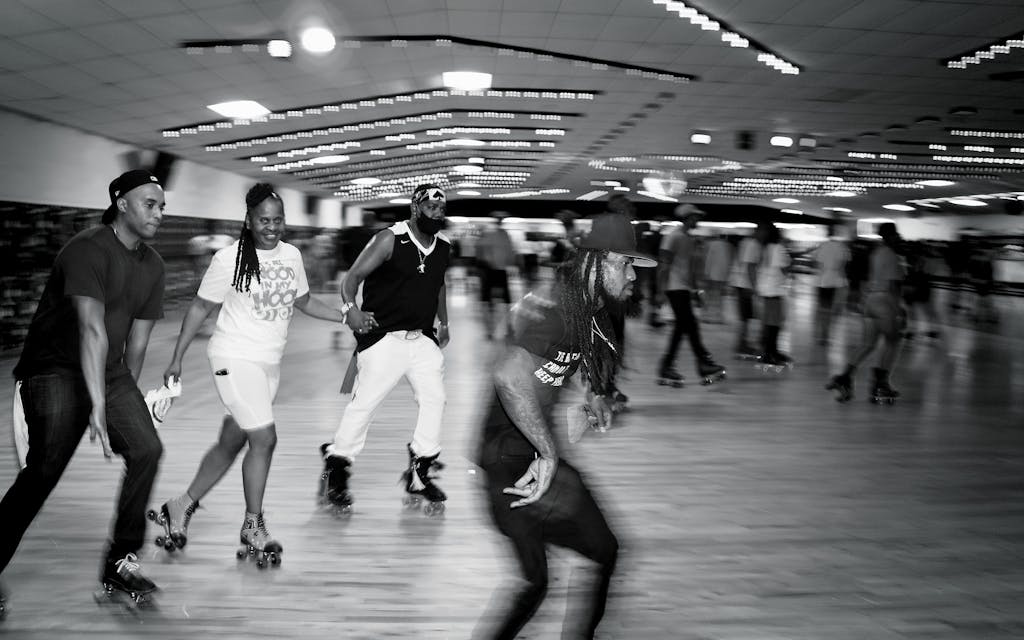
That’s how Tina Piggee, 56, learned to skate. Her mother was an avid skater who first took her to the rink when she was five. But Piggee, today 56, gave it up in 1998 to focus on her family. Brown, Piggee’s colleague at the American Automobile Association, invited Piggee to Forum in 2015, and soon the friends rolled together twice a week. Then the women traveled to Alabama for their first “skate jam,” a weekend-long party, where the wider skating world opened for them. “I loved it: the music, the styles, the relationships,” Piggee says. “Skating is about connecting with yourself and others. We skated two years together until I got hurt.”
On Halloween night in 2017 at Forum, Piggee rolled with Brown, costumed as Tom Cruise’s character in Risky Business. Another skater’s necklace broke, scattering beads on the floor. One snagged in Piggee’s wheel; she fell hard and injured a leg. She swore she’d quit skating for good, but that vow didn’t last long. “A year later, Gigi said, ‘I’m starting a new club, and I need you to come out of retirement,’” she recalls. Caution led to curiosity, and eventually, Piggee joined the Dallas chapter of the Wood Rydrz Skate Club. She now serves as the group’s photographer.
Patricia “Sweet P” Jackson, 47, started the Wood Rydrz Skate Club in Los Angeles in 2014. Skate clubs are typically small, informal, local, and male-dominated, but five of the eight Wood Rydrz chapters are led by women. Each chapter has between eight and ten members. Most members travel to events nationwide. “People in L.A. said, ‘You’re wasting your time; no Black woman ever started a successful skate club,’” Jackson says. She proved them wrong, and her ambition for Wood Rydrz soon grew beyond Los Angeles. As she attended events from Chicago to Miami, she sought skaters with the right vibe, a mixture of passion and dedication. She didn’t want wallflowers. “I met Gigi in Detroit. She was dancing in a rink parking lot. I wanted her bad for a Dallas chapter. She turned me down, but I kept at it.” Eventually, Brown agreed to start the club, and the Dallas Wood Rydrz rolled together for the first time in May 2018. About five of the nine members now meet weekly at Forum. Jackson aspires to start chapters in New York and Florida next.
For Jackson, skating is a restorative experience. “When I hit that wood, it’s my turn to pray or cry,” she says. “I used to suffer from depression. At the rink, you can use that energy to avoid self-destructive habits. It’s freeing.”
In August, eight years after her daughter’s death, Brown, now 63, organized the “It’s All Wood in My Hood” Wood Rydrz Skate Jam. It was her most ambitious event to date: four nights of skating, a bowling party, and a cookout with Wood Rydrz members from Northern California, Chicago, and Little Rock, plus other friends from across Texas. DJ Mike Smoove flew in from Los Angeles to spin at the main party on Saturday night. Leo White, famous for his graceful, ballroom-style moves—sometimes performed perilously on single-wheel roller skates—came from St. Louis to teach a line-dancing workshop on Friday afternoon. Brown had help, but she was still a little overwhelmed with all the planning: coordinating hotel rooms, placing catering orders, making rink reservations, promoting the event on Facebook and paper flyers, and a dozen other details. She began planning in February after the annual Houston Rolling Roundup skate party. The possibility of pandemic shutdowns loomed large over it all.
“I wasn’t sure what the turnout was going to be,” Brown says. “I had a lot of doubts. I asked myself, ‘Are people going to support you?’”
Skaters did support Brown—more than three hundred of them. At midnight on August 14, the Arlington Skatium, which bills itself as the largest rink in Texas, opened its doors for the Wood Rydrz’ “Summer Breeze” party. DJ Smoove spun a mix of funk, R&B, and West Coast rap as club members twirled, shuffled, and line-danced with friends until 5 a.m. Still, the pressure to pull off a successful weekend, and the moments of anxiety when police turned away disappointed skaters attempting to enter the full rink, stressed Brown. She didn’t skate that night.
Shortly before the party ended, the Wood Rydrz gathered in their catered VIP room. There, the club’s CEO, Jackson, surprised Brown with a plaque that read: “In appreciation of your leadership, dedication, devotion, and commitment to the Wood Rydrz Skate Club.” Brown couldn’t hold back her tears, and neither could Jackson, who wiped her eyes from behind dark sunglasses. “I love each and every one of you,” Brown said. “You trusted me, and you accepted me for being myself. Team Texas, a dream come true.”
The next night at Forum, where eight years earlier she’d skated for the first time after her daughter’s death, Brown’s warm smile returned. She felt released from pain again. “Sometimes I could be loud and obnoxious, but people here love me for who I am,” she said. “I don’t have to be ashamed to say I’m sixty-three years old. . . . Skating saves lives, even if it’s just for a few hours. You can get back to reality when you leave the rink.”
